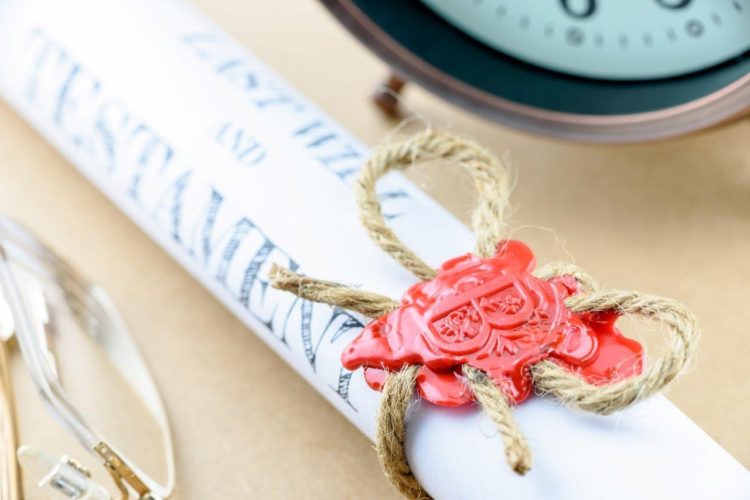President Lyndon B. Johnson signed into law the Civil Rights Act of 1964 and the Clean Air Act in addition to waging a “War on Poverty.” He also contributed an estate planning tool that remains popular with residents of certain states today.
President Johnson used a special type of deed to gift property to his wife Lady Bird when he died. As a result, the “Lady Bird” or enhanced life estate deed was popularized. Lady Bird deeds provide estate planning opportunities to homeowners in Florida, Michigan, Texas, West Virginia, and Vermont. Each of these states enacted unique laws governing Lady Bird deeds but this article focuses on Florida law.
Lady Bird deeds allow homeowners to devise real property outside of probate and maintain important homestead benefits. To understand the benefits that a Lady Bird deed offers, it is important to recognize how they differ from traditional deeds.
A life estate is an estate in real property that is held for the duration of a person’s life. After executing a deed containing a life estate, a homeowner retains the right to live in the property and even profit therefrom until that homeowner passes away. The homeowner is unable to sell or mortgage the home during his or her lifetime without the consent of the remainder beneficiaries. A Lady Bird deed allows the homeowner to retain the right to sell, gift, lease, or mortgage property without consent of the remainder beneficiaries. Additionally, Lady Bird deeds allow homeowners to remove or amend beneficiary designations while the homeowner is alive.
Lady Bird deeds afford homeowners flexibility, creditor protection, preservation of Medicaid benefits and the ability to eliminate federal gift taxes. An enhanced life estate or Lady Bird deed automatically vests title in the remainder beneficiary when the homeowner passes away. Lady Bird deeds allow real property to pass to the remainder beneficiaries outside of probate, which can be protracted and costly.
Florida homeowners who transfer ownership of their primary residence via a Lady Bird deed may also remain eligible to receive homestead and widow’s exemptions.
Homestead Exemption
Florida arguably offers the broadest homestead protections in the United States. A homestead, or primary residence owned and occupied, is entitled to property tax exemptions. A homestead exemption provides asset protection from most creditors. Only mortgage holders, taxing agencies and home contractors may place a lien on homestead property or seize equity in homestead property. Homestead exemptions also provide property tax reductions up to $50,000 for Florida residents and more for those over 65 years of age.
A Lady Bird deed allows homeowners to preserve homestead benefits, while a traditional life estate deed does not. A homestead exemption is generally extinguished for property tax purposes after a Florida resident’s primary real property is conveyed to a beneficiary through a life estate deed. However, a homeowner who conveys his or her primary residence via a Lady Bird deed generally does not lose his or her homestead exemption. The “Save Our Homes” amendment to the Florida Constitution set a three percent maximum limit on annual valuation increases of homestead properties to prevent owners from being taxed out of their homes. A Lady Bird deed protects homeowners from most creditors and unreasonable property tax increases; whereas, real property that is transferred via a life estate deed or a trust may not be protected in the same manner.
Article X, Section 4 of the Florida Constitution protects all homesteads from forced sale. In addition to the above-referenced benefits, Lady Bird deeds also protect Florida homesteads from being sold against the will of the owners, even in bankruptcy cases. At most, a creditor may place a lien on the property, except for the exempt creditors enumerated above. This protection against forced sale passes to the beneficiaries of the property, meaning that a surviving spouse, children, and family members who may receive the property via a life estate or an enhanced life estate cannot be forced to sell the property.
Widow’s Exemption
In addition to the helpful protections afforded to owners of homestead property in Florida, widow and widower exemptions are not impacted by a Lady Bird deed. In Florida, any widow or widower who is a permanent resident may claim a $500 reduction in the assessment of a homestead property occupied by a surviving spouse. If the widow remarries or divorces, the widow is ineligible to receive the exemption.
Lady Bird deeds are complicated legal instruments that are not appropriate for every Florida resident. An experienced estate planning attorney should be consulted before implementing this legal tool. If you require assistance in preparing an estate plan or if you have other legal inquiries, please contact Michael Salad via e-mail at msalad@cooperlevenson.com or via direct dial at (954) 889-1850.
Michael Salad is a partner in Cooper Levenson’s Business & Tax and Cyber Risk Management practice groups. He concentrates his practice on estate planning, business transactions, mergers and acquisitions, tax matters and cyber risk management. Michael holds an LL.M. in Estate Planning and Elder Law. Michael is licensed to practice law in New Jersey, Florida, New York, Pennsylvania, Maryland and the District of Columbia.
Samantha Edgell is a summer associate in Cooper Levenson’s Atlantic City, New Jersey office.









